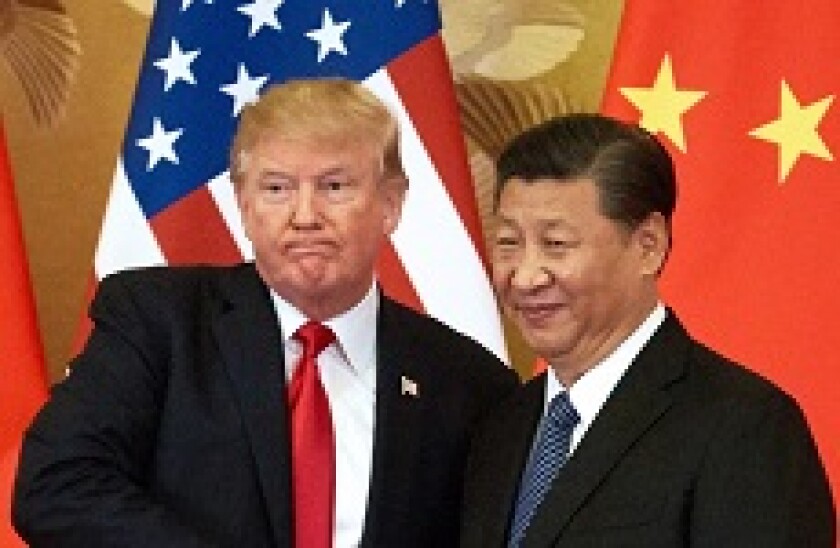In an interview with the Wall Street Journal on Monday, Trump reiterated that further US taxes on Chinese imports are likely, specifically a 25% tax on $200bn of imports, likely to come into force in January.
Unhelpfully, the US president then made further tariff threats and name-dropped Apple’s iPhone as one particular consumer product which could face further taxes.
Trump said that consumers could “easily” stand a 10% hike in iPhone prices, an unhelpful interjection given Apple’s recent equity woes, that have seen it lose almost 24% of its value since the end of September.
Apple’s modest stock price gains on Monday were erased in after-market trading following the publication of the Trump interview.
The sell-off of October and November has revealed that equity investors are far more bearish about markets in the near-term than had previously been suspected, not only damaging secondary markets but also curtailing primary ECM issuance.
Trump has been, at least partially, blamed given the negative effect that increased trade tariffs would have on corporate earnings because of the integrated nature of global supply chains.
Some investors though, say that they think Trump’s tough talk is a negotiating tactic, similar to his approach to NAFTA before a new deal was signed, and that any fund positioned for a deal between the two countries could outperform in the last few weeks of the year.
This is certainly possible — President Trump is nothing if not unpredictable — but investors should not count on it.
Trump is somewhat of a wounded animal politically, after his Republican Party lost the House of Representatives to the Democrats in the US mid-terms.
While easing taxes on goods manufactured in China would please many in corporate America, it doesn’t play well to Trump’s often blue collar base, many of whom voted for him because of his vows to get tough on China and its unfair and uncompetitive global manufacturing practices.
Simply though, another reason that Trump is unlikely to do a deal with China in order to help equity markets, is that he doesn’t see that as his responsibility.
Trump’s recent Twitter activity shows that he blames the recent falls in US stock markets on the monetary policy of the Federal Reserve and its chair Jerome Powell.
Rising rates have indeed hurt prices in US equity markets. As US 10 year yields have risen, many investors have reallocated capital from stocks into products like US Treasuries.
In October, in an interview with his preferred television station Fox News, he deflected concerns that trade hostilities had anything to do with falling stock markets.
He said that the “correction” had been needed for some time, but that he disagreed with the Fed’s monetary policy stance and that in raising interest rates multiple times this year the Fed was “going loco”.
While there is a philosophical debate over whether the Fed should let equity market sentiment determine its monetary policy-making decision, Trump certainly seems to think it should.
His attitude should inform investors against betting too heavily on a détente between the US and China in order to help stock markets.
Trump’s trade agenda against China is core part of his political brand, something which he does not think is responsible for equity volatility, and a problem he is not convinced is his job to fix.
In short — he's not coming with any Christmas presents for equity investors.

